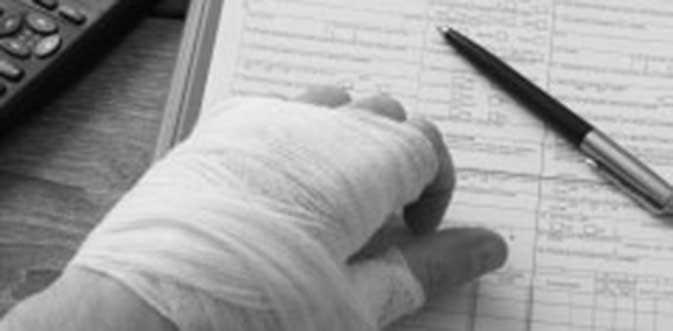I was very hopeful that our legislature would pass a law that cracked down on fraud in our current No-fault insurance system and in particular the Personal Injury Protection coverage (PIP). Instead, what we got was politics as usual, where politicians listened to the lobbyists of the insurance industry as opposed to tending to the needs of Floridians.
The House approved HB 119 largely along party lines, 80-34, but the Senate passed the measure at 9:20 p.m. on the last day of the legislative session with a close vote of 22-17. Senate President Mike Haridopolos collected some IOUs to get the measure passed. “I was focused on getting PIP passed and delivering those votes to the governor,” Haridopolos said. “When I had to call in a couple of favors today on a tough vote that will lower the cost on auto insurance, some people on the fence said, ‘you know what Mike, I’m going to give you this vote.”‘
Afterward, Governor Scott appeared in the Senate chamber and stated; “This is a triumphant moment for the residents of Florida,…. Members of the Legislature heard our call to put Floridians ahead of special interests and combat the fraud that has become a billion dollar tax on drivers.”
With the exception that we suffer a billion dollar tax on drivers, Mr. Scott’s congratulatory speech couldn’t be further from the truth. This is catering to the auto insurance industry, one of the largest special interest groups in Florida, and has absolutely no teeth to take a bite out of the over-exorbitant auto insurance rates for Florida residents and no concrete method to curb the PIP fraud.
“Floridians are in for a rude awakening,” Florida Consumer Action Network spokesman Bill Newton said as quoted in The Insurance Journal. “Instead of measures aimed at preventing true fraud, we’re left with a bill that pads the pockets of big insurance companies.”
The bill requires injured people to obtain medical care within 14 days of their injury. The care must be from a physician, osteopath, dentist, chiropractor, physician’s assistant or advanced registered nurse practitioner, or from a hospital or in a facility wholly owned by a hospital. Otherwise, they will not qualify for PIP coverage.
As almost any qualified medical professional will tell you, there are many types of trauma induced injuries that do not manifest themselves until after 14 days from the date of trauma. Therefore, those that suffer such injuries will have to reach into their pockets or pass the costs on to their health insurance carrier, which will, in turn, drive health insurance costs even higher. Further, this excludes homeopathic treatments such as massage and acupuncture that many cultures would prefer over more traditional western medicine.
Also within the bill, a treating physician, osteopathic physician, dentist, supervised physician’s assistant or advanced registered nurse practitioner must determine that the victim has had an “emergency medical condition” for them to qualify for the full $10,000 medical benefit defined in the PIP law since its inception. Without declaration of an emergency medical condition, the insurance payment is capped at $2,500.
“Emergency medical condition” means a medical condition manifesting itself by acute symptoms of sufficient severity, which may include severe pain, such that the absence of immediate medical attention could reasonably be expected to result in any of the following:
(a) Serious jeopardy to patient health.
(b) Serious impairment to bodily functions.
(c) Serious dysfunction of any bodily organ or part.
So if a victim of a car collision requires medical treatment in excess of $2,500 but a medical professional opines that the condition does not qualify as an “emergency medical condition,” the victim will be without further PIP coverage, again requiring the victim to reach into their own pocket or make a claim with their health insurance carrier. What’s worse is that this law does nothing to curb the rampant fraud. If a fraudulent clinic wants to continue to qualify for the PIP, then they simply find the right qualified medical workers, who are willing to put profits before morality, and pay them to insure that their billings qualify for the full $10,000.
Floridians will most likely not see any rate reduction or if they do it will be passed on to another increase in other parts of their insurance policy. The Insurance Journal stated that the Senate sought a guaranteed 25 percent rate reduction on PIP, but settled for a 10 percent reduction that’s not guaranteed. If insurers who offer PIP do not provide their customers a minimum 10 percent rate reduction, they must explain in detail why not. A second rate filing required on Jan. 1, 2014, proposes insurers have a 25 percent premium reduction for policyholders unless they can show why they’re unable to provide the cut. My bet is they find a reason why they don’t have to cut the rate.
Tort Reform has been in effect, largely due to insurance lobbying, for decades, yet insurance consumers have yet to see their insurance rates go down. Instead, this new PIP legislation is another tactic by the insurance industry to lower their payouts while continuing to raise rates of their insured.
Finally, not only is there nothing to insure that Florida residents will see a decrease in their insurance rates or that the fraud will be curbed, but also could see peripheral costs and taxes increase in order to fund fraud investigation and the litigation that will surely ensue as the courts try to hash out the interpretation of the new law and lawyers use creative arguments to try and fit the language to best support their clients.
This new legislation was poorly written, poorly thought out and past at the last minute in order that Governor Scott can say he did it. Unfortunately, many Floridian’s will most likely be harmed in more ways than one due to the IOUs that Senate President Mike Haridopolos cashed in to help Mr. Scott in his bid for political votes and his catering to the auto insurance interests.





